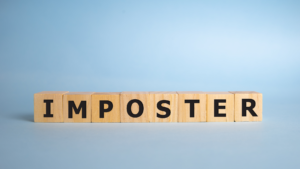Navigating the complex landscape of healing after domestic, family, and sexual violence, is a challenging and difficult time. Trauma denial happens when you try to create an emotional distance between yourself and an adverse experience. This process can be unconscious and is a natural coping mechanism for distress. Your brain is simply trying to protect you from feeling overwhelmed. In the early stages, denial can be used as a survival mechanism, allowing survivors to regulate their overwhelming reality.
For survivors of domestic, family, and sexual violence, denial as a stage of grief can manifest as a coping mechanism in response to the overwhelming and traumatic experiences they have endured. Denial, the initial stage of the Kübler-Ross model (Five Stages of Grief), involves a reluctance or inability to accept the reality of the situation.
Denial may serve as an interim sanctuary from the harshness of the trauma they’ve experienced. It could manifest in different ways, such as an avoidance of acknowledging the severity of the abuse or an attempt to minimise its impact. Survivors might find themselves reluctant to fully embrace the reality of what has happened, as facing it head-on can be emotionally daunting.
Denial can act as a protective shield, creating a buffer against the full emotional weight of the trauma. It may show as a form of self-preservation, allowing survivors to navigate their experiences at a pace that feels more manageable. However, it’s important to note that denial is a natural and temporary stage in the grieving process.
Support and understanding from professionals, friends, work colleagues, and family play a crucial role during this phase. Creating a safe and non-judgmental space for survivors to express their feelings, even if those feelings include denial, is essential. Over time, as survivors move through the stages of grief, denial can give way to a more comprehensive and accepting understanding of their experiences.
Navigating grief, especially for survivors of complex traumas like domestic, family, or sexual violence, is a highly individual process. Acknowledging and respecting each survivor’s unique journey through these stages is fundamental to providing effective support and fostering healing.
Addressing trauma symptoms is not easy, but it can bring rewards. Seek out specialist or expert support for help and guidance. Build up a support ‘toolkit’ to draw on when needed to assist to heal from the trauma.
Adamus Nexus is a post-crisis peer-based support group for women to empower and assist each other via shared experience, understanding and connection through the period after the domestic, family and sexual violence has occurred. The support group provides a confidential and safe environment for survivors to meet to provide community, connection, and corroboration in an online and forum.
Have you signed up to the Adamas Nexus Newsletter? Click HERE to sign up now.
Find Your Tribe So You Can Thrive – Tedx Talk with Kristine Hewett
Many people have had a traumatic incident in their lives, and we now all have the collective trauma of COVID. Why is there an expectation that we need to ‘get over it’ or ‘move on from it’? Lived experiences may well have happened in our past, but they have ongoing impact on our now and our future. Kristine wants to help people to do more than survive and to in fact thrive by finding their people or tribe.




